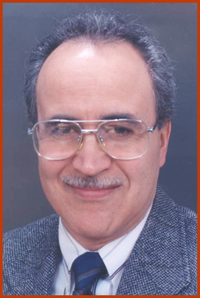College degree for a freelance translation career Thread poster: Ajunta
|
|---|
Hello good people!
I'm a bilingual person who's been working for a couple of years to afford getting higher education, and now that the time has come I'm a little confused. I know I want to translate from home for a living, but I don't know which college degree would help me with that best. I suppose the natural answer would be an English degree, but I feel like that would limit me quite a bit in case translating doesn't work out and would be irrelevant for gigs not involving Englis... See more Hello good people!
I'm a bilingual person who's been working for a couple of years to afford getting higher education, and now that the time has come I'm a little confused. I know I want to translate from home for a living, but I don't know which college degree would help me with that best. I suppose the natural answer would be an English degree, but I feel like that would limit me quite a bit in case translating doesn't work out and would be irrelevant for gigs not involving English.
I've been thinking maybe journalism? I mean I've heard employers like seeing a guy who's got a way with words in the field, so I don't know. What do you think? ▲ Collapse
| | | |
I personally think that a degree in your specialist field is worth more than a degree in translation. Not only that, but it would also help you find a job in a field that you're actually interested in down the line, should you decide that translation isn't your thing.
Aside from that, my business degree, or the things that I actually learned from the courses I took, has been very helpful.
| | | |
Jorge Payan 
Colombia
Local time: 01:13
Member (2002)
German to Spanish
+ ...
Triston Goodwin wrote:
I personally think that a degree in your specialist field is worth more than a degree in translation. Not only that, but it would also help you find a job in a field that you're actually interested in down the line, should you decide that translation isn't your thing.
Aside from that, my business degree, or the things that I actually learned from the courses I took, has been very helpful.
I agree 100%. Nowadays, translation is a trade and not a profession. The BScEE I hold is what really allows me to make a living from translation.
| | | |
| The answer is obvious | Nov 12, 2015 |
If you want to practice medicine, you take a medicine degree, or if you want to be a lawyer, you take a law degree, right? If you want to be a translator, you definitely want to shoot for a degree in translation.
There is so much more to translation than simply mastering your working languages! A degree in translation will give you the depth, breadth, and edge in languages and communication you need in order to be considered a serious player in this industry. While I do agree that i... See more If you want to practice medicine, you take a medicine degree, or if you want to be a lawyer, you take a law degree, right? If you want to be a translator, you definitely want to shoot for a degree in translation.
There is so much more to translation than simply mastering your working languages! A degree in translation will give you the depth, breadth, and edge in languages and communication you need in order to be considered a serious player in this industry. While I do agree that if you see yourself translating in a particular area of human activity or knowledge, like Law, Business, Science, Technology, higher education in them would not harm either, if you need to choose for now and can only afford to take one degree, to me it would definitely be a BA in Translation. ▲ Collapse
| | |
|
|
|
Roy OConnor (X)
Local time: 08:13
German to English
| Be careful what you choose | Nov 12, 2015 |
I agree wholeheartedly with the first two contributors. Make sure you have a solid degree and some experience in some profession other than translation. Read the threads on this site to see the opinions about the future of translation. There are so many entries from young people who have a translating degree and cannot find enough work.
As someone who works in technical writing I think there may be a future for you in journalism. The prospects for paper-based publications look very ... See more I agree wholeheartedly with the first two contributors. Make sure you have a solid degree and some experience in some profession other than translation. Read the threads on this site to see the opinions about the future of translation. There are so many entries from young people who have a translating degree and cannot find enough work.
As someone who works in technical writing I think there may be a future for you in journalism. The prospects for paper-based publications look very bleak, but your language skills might come in handy for other forms of media.
Good luck with whatever you decide!
[Edited at 2015-11-12 07:11 GMT] ▲ Collapse
| | | |
Dan Lucas 
United Kingdom
Local time: 07:13
Member (2014)
Japanese to English
| How to market yourself | Nov 12, 2015 |
Ajunta wrote:
I've been thinking maybe journalism? I mean I've heard employers like seeing a guy who's got a way with words in the field, so I don't know. What do you think?
A degree in journalism doesn't prove an ability with words. It proves you did a degree course in journalism, which is in its traditional form a dying profession populated by mostly penurious practitioners. Why spend three years for that?
Demonstrating the ability to write is as easy as, well, writing something and showing it to the person you're trying to impress.
I always say the same thing, so I might as well be consistent and say it again: any business needs to be able to differentiate itself from the competition in some way. Freelance translators are no exception. How do you plan to differentiate yourself from the thousands of newly minted Translation BA graduates that emerge blinking into the sunlight every year?
My usual advice is to go away and do something else in industry and come back in a decade, when your skills and knowledge will be far greater than they are today. But if you only ever wanted to freelance from home - are you confident that lifestyle will suit you? - then maybe just go for it and do the BA in Translation.
Regards
Dan
| | | |
| Is it so easy in other professions? | Nov 12, 2015 |
Roy OConnor wrote:
I agree wholeheartedly with the first two contributors. Make sure you have a solid degree and some experience in some profession other than translation.
So, are you suggesting that if the OP takes a degree some other matter, employers will chase him/her everywhere, begging him/her to accept a high-pay job right off college?
Roy OConnor wrote:Read the threads on this site to see the opinions about the future of translation. There are so many entries from young people who have a translating degree and cannot find enough work.
Of course it is difficult for ALL newbies in ALL professions. But if you seek a career in translation, it is best to start in the correct way, one that will give you the depth and breadth of knowledge needed in order to translate professionally. Specialisation is then a second requirement, of course.
| | | |
Roy OConnor (X)
Local time: 08:13
German to English
| Translating is too uncertain | Nov 12, 2015 |
@ Tomás,
I just think translating is a career that is too uncertain for someone considering their future. I am pretty sure that language skills can be put to better use in a wider business field. There are two or three people in my family who have proved that this is true.
Of course, the wider business world also needs other appropriate skills, not just language ability. I think the OP's education and training should take this into account.
| | |
|
|
|
Dan Lucas wrote:
My usual advice is to go away and do something else in industry and come back in a decade, when your skills and knowledge will be far greater than they are today.
Exactly. Translations are always about some other field of activity. The translator needs some knowledge of that field in order to translate competently. Go off and get some experience of life and work, and then you'll be in with a fair chance of understanding the material you come to translate later. The ignorance displayed by translators who have gone from school to university to home office is sometimes astounding. Please don't join them.
| | | |
| What about ... | Nov 12, 2015 |
International Business
International Law
International Journalism
Engineering
Medicine
and work experience in two countries. I can imagine that such experience would give a translator a competitive edge?
| | | |
Sheila Wilson 
Spain
Local time: 07:13
Member (2007)
English
+ ...
| The best, IMO | Nov 12, 2015 |
First, a degree in whatever area interests you, preferably bilingual or in your main source language. This will provide you with your specialisation for translation, and will be an alternative career path should translation not turn out for you.
Then, a Master's in translation to give you the techniques to translate texts relating to what what you've learnt in one language into another.
Following on from Gabriele's excellent suggestion, I'd say that if you don't really ... See more First, a degree in whatever area interests you, preferably bilingual or in your main source language. This will provide you with your specialisation for translation, and will be an alternative career path should translation not turn out for you.
Then, a Master's in translation to give you the techniques to translate texts relating to what what you've learnt in one language into another.
Following on from Gabriele's excellent suggestion, I'd say that if you don't really have any burning ambitions, specialisation-wise, doing an International Business degree in your source-language country, maybe coupled with studies in other source languages and followed by an MA in Translation Studies would be ideal. ▲ Collapse
| | | |
Ajunta wrote:
... I want to translate from home for a living...
This is not to specifically answer your question, but I thought it was important to mention it.
Before making any decisions, I would first ask other freelance translators who work in my specific pair how well (or bad) they are doing, how difficult was for them to get established (and more importantly, how difficult they think it will be in the future), how promising (or bleak) the future looks to them, etc.
Once you do that, you might very well see that Roy's advice makes a lot of sense.
I wish you the best of luck.
| | | |




















